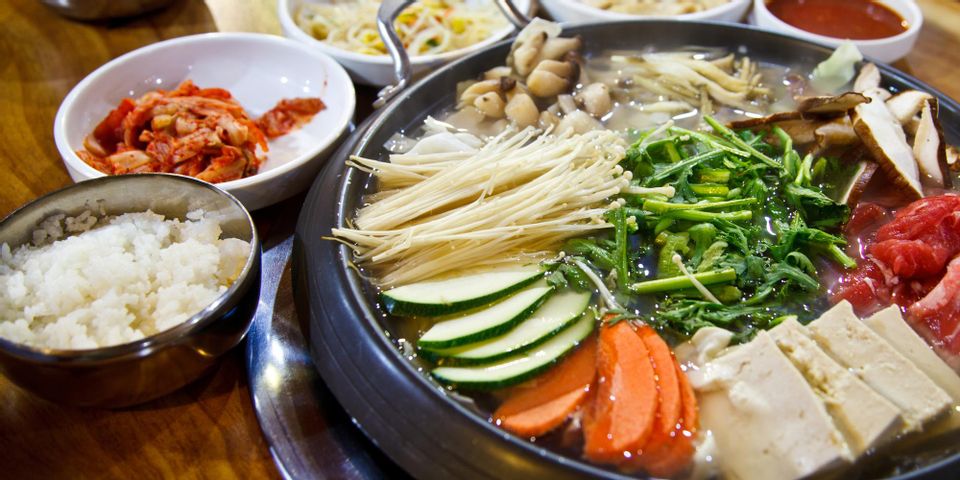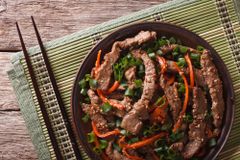
While Korean cuisine is delicious, its intense flavors can make it trickier to pair with wine. It’s generally recommended to choose wines that aren’t too sweet, as they can take away from the flavors. Here are a few Korean food and wine pairings to try.
Matching Korean Foods With Wines
1. Bibimbap
Bibimbap is a rice dish topped with vegetables, meats, egg, and chili sauce. If you’re vegetarian, you can request this Korean food without any meat. Bibimbap has strong flavors from the meat, sauce, and spices, so it calls for a full-bodied wine like Zinfandel to counter it.
2. Grilled Meats
 Korean grilled meats, like bulgogi and kalbi, are sure to satisfy anyone’s taste buds with soy sauce, sesame oil, garlic, and ginger combined with the flavors of the meat. Avoid overly tannic or harsh wines that may overpower the grilled meats; instead, opt for dry rosé or Pinot Noir.
Korean grilled meats, like bulgogi and kalbi, are sure to satisfy anyone’s taste buds with soy sauce, sesame oil, garlic, and ginger combined with the flavors of the meat. Avoid overly tannic or harsh wines that may overpower the grilled meats; instead, opt for dry rosé or Pinot Noir.
3. Kimchi
A staple of Korean cuisine, kimchi consists of salted and fermented vegetables. Many white wines, like Riesling and Pinot Gris, complement this pungent dish quite well. If you prefer red wines, stick to those with balanced bodies and low tannin content, like a Pinot Noir, as they will bring out the flavors even more.
4. Haemul Pajeon
Seafood is a primary ingredient of many Korean dishes. Haemul pajeon, a seafood pancake, is a popular appetizer to share. It should accompany a wine that isn’t too bold or tannic, such as a chilled rosé or a Pinot Grigio. These wines have good depth and fruity notes that complement the crisp flavor of this seafood pancake.
If you’re craving Korean food, stop by New Shilawon Korean Restaurant in Honolulu, HI. Established in 1994, the restaurant takes pride in serving quality cuisine and is particularly known for delicious Korean BBQ. They prepare more than 40 traditional dishes fresh daily, and their a la carte menu includes kimchi stew, meat jeon, and seasoned short ribs. To make a reservation, call (808) 944-8700, or visit their website to view their menu.
About the Business
Have a question? Ask the experts!
Send your question

